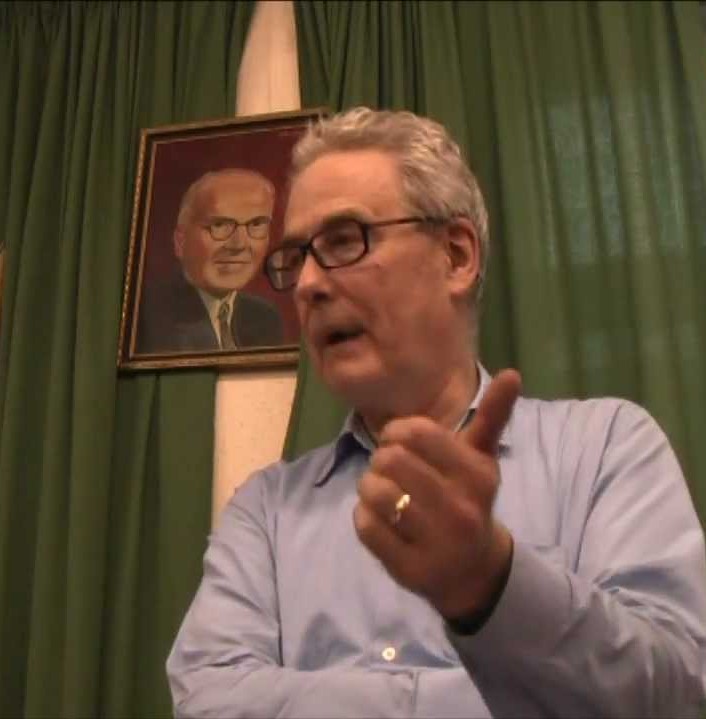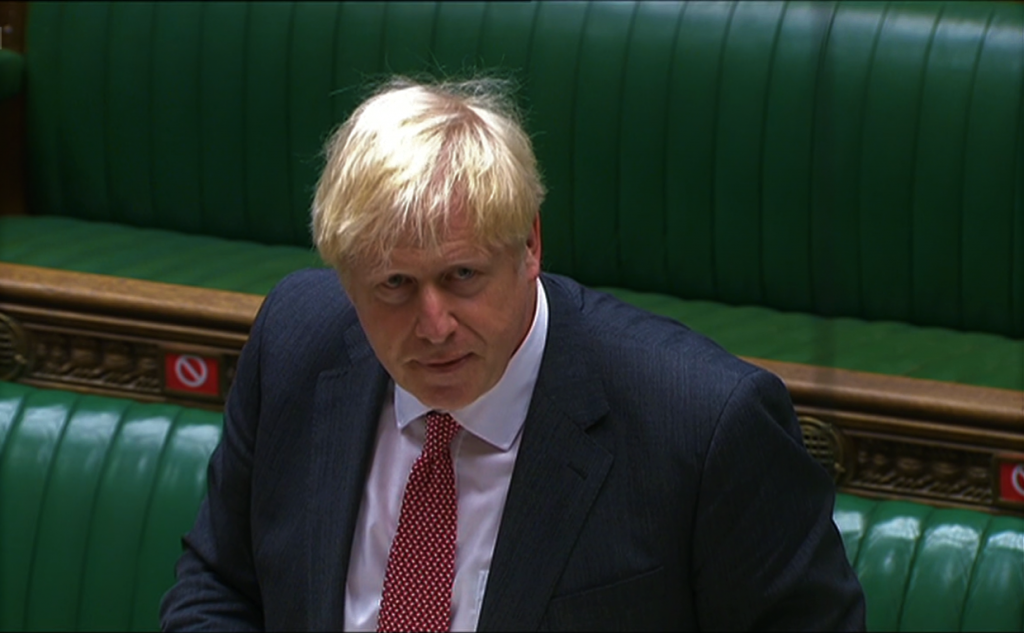The government’s new Bill withdraws economic decision-making powers from devolved administrations just as they are set to escape EU ‘competition’ regulation, explains Communist Party International Secretary, John Foster. This article first appeared in the Morning Star.

The government’s new Bill, published this week, on the UK Internal Market represents a very significant challenge to the labour movement – though not in the way some have chosen to interpret it.
Yes, the Bill does up the ante with the EU negotiators. It asserts the rights of a British government over the UK internal market and rejects attempts by the EU to limit state aid and enforce EU competition terms within Britain.
This stance may lead to the break-up of current negotiations with the EU. Or it may serve to focus them. Time will tell.
However, the real long-term issue for the labour movement is quite different. It concerns the legal framework for industrial policy inside Britain after January 1 2021.
The Bill explicitly withdraws powers delegated to legislatures in Scotland and Wales to provide financial aid to industry – for Scotland as long ago as the Scotland Act of 1998. And it similarly blocks any attempt to secure parallel powers for regional authorities in England.
Is this simply a temporary tactical move related to the EU negotiations? It does not appear so. It closely matches the new economic strategy being developed by Boris Johnson and his chief adviser Dominic Cummings which plans for a far more powerful and directive relationship being exercised centrally between government and big business.
It is a strategy that results from the failure of the industrial policy enacted by Theresa May’s government in 2017, from the manifest chaos of the government’s attempts to use the private sector to tackle Covid and the political necessity of being seen to do something to level up development in the Tories’ new “red wall” seats in the north.
May’s 2017 industrial policy was meant to tackle Britain’s fatally low productivity and the lack of corporate investment in either labour or research and development. It offered a variety of financial incentives to lever in new investment.
It failed dismally. Why? Largely as a result of the way big business is now owned – dominated by investment companies that need to maximise their own short-term income for competitive survival. Corporate profits were hijacked to pay for enlarged dividends and share buybacks – not investment. Hence stagnation and minimal growth.
That’s why Cummings and Johnson now look to the state to play a far more directive role. They want to use state aid centrally to direct British firms to invest in new technologies, artificial intelligence, communications and computerised design and production.
Examples would be the decision to invest half a billion in One Web, the satellite operator and proposals to duplicate the US government’s Defence Advanced Research Agency.
This week the guardian of neoliberalism itself, the Financial Times, was calling for government action to stop the headquarters of Arm, Britain’s only major chip maker, being moved out of the country.
It is for this reason that the government wants state aid to be focused at British level – to secure this new linkage between government and the biggest of big businesses.
To that extent it is indeed rather like the EU’s own “competition” and state aid regime. This also benefits the biggest.
While the EU’s assertion of a “level playing field” and the denial of most types of state aid sounds “fair,” it is definitely not when the “players” themselves are massively different in size. The big firms in big countries flourish. Small firms in small countries go under. The ban on state aid boosts monopolisation.
It is why economic development across the EU has got steadily more uneven – resulting in periodic financial crises between debtor and creditor states and the subsequent imposition of “austerity” on the debtors.
The same will also apply to Johnson’s single market legislation and that’s why the trade union and labour movement should be lobbying against it – not because it’s “anti-EU” but because it’s copying it.
The reason trade unionists in Scotland campaigned so long for a Scottish Parliament was that it would enable them to do something about industrial decline, to stop closures and promote strategic investment. It was about jobs, decent wages and economic self-determination.
These powers were secured in 1998 – but then quickly overridden by EU state aid rules. As Nicola Sturgeon put it when declining to intervene against the Rolls Royce closure at Inchinnan earlier this year, “we have to operate within state aid constraints.”
Today, in the midst of Covid, these powers are needed more than ever – not just in Scotland and Wales but across the de-industrialised regions of England, a country today scarred by Europe’s greatest geographical disparities in development.
These powers are not required “to subsidise failure,” as Tories have always claimed. It’s the reverse.
It is in our regions and nations that there is the best chance of developing locally responsible, sustained and cumulative investment policies. This is because they would be far more democratically accountable and – in current political circumstances – more likely to involve a public-sector component that would tie down footloose capital.
Equally this is why Johnson’s plans are not likely to succeed – except in making the very rich richer. Centrally directed infrastructure projects to “level up” the Midlands and the north will do little or nothing to develop local pools of high technology expertise and locally controlled investment.
£12 billion has just gone to a consortium of multinational firms to build HS2 – British, Australian, Swedish, French. The biggest, Balfour Beattie, is almost entirely owned by investment companies and the profits will go to the City of London, not to local communities.
Johnson’s new Bill will mean more of this. It may use government money to boost headline-grabbing developments. But it will not solve the productivity problem. The concentration of state aid powers at the centre means more of the same.
Trade unions across the country should therefore take a leaf out of Scotland’s book. Here unions and trades union councils are already backing a petition that has gone to the Scottish Parliament asking that it defend its existing 1998 powers. These powers are needed now – and, if they are not blocked by Johnson’s law, they will be free to use in just four months’ time once the EU bans are lifted on January 1 2021.
John Foster
International Secretary
Communist Party



